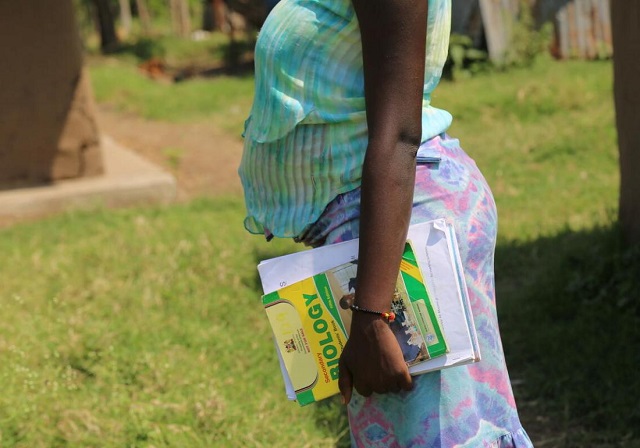
Kabale, Uganda | THE INDEPENDENT | Stakeholders from Civil Society Organizations, politicians, and the medical fraternity have faulted religious leaders for sabotaging campaigns aimed at reducing rampant teenage pregnancies in Uganda. This criticism was voiced during the Kigezi Regional Dialogue on Sexual Reproductive Health Rights, organized by the Non-Governmental Organization Local Sustainable Communities (LOSCO) at White Horse Inn, Kabale.
During the dialogue, Kabale District Health Officer Dr. Gilbert Mateeka stated that the national teenage pregnancy rate has stagnated between 23% and 24% over the past 3-4 years, with Kabale District alone registering an average of 1,300 teenage pregnancies annually. He noted that many of these girls drop out of school to become mothers, while others die during childbirth or due to abortion complications.
Dr. Mateeka explained that while some government officials and religious leaders focus on the legal and moral issues, health service providers bear the brunt of the problems associated with teenage pregnancies, including miscarriages, abortions, and childbirth complications.
Florence Tumuheirwe, Executive Director of Kigezi Women in Development (KWID), reported that human rights activists have received threats from the public, including religious leaders, for advocating sexuality education and family planning methods to curb teenage pregnancies.
Albert Taremwa, Executive Director of LOSCO, expressed disappointment over Deputy Speaker of Parliament Thomas Tayebwa opposing a government policy that approves the use of contraceptives among sexually active teenagers.
Sam Arinaitwe, LC3 Chairperson of Central Division in Kabale Municipality, stated that politicians have avoided supporting family planning methods and sexuality education due to fear of religious leaders who oppose these campaigns.
Dr. Godfrey Bampabwiire, In-Charge of Muko Health Centre IV in Rubanda District, revealed that in seven months, he had performed caesarian sections on three girls who gave birth before their first menstrual periods. He argued that teenage pregnancies should not only be viewed as cultural, legal, or moral issues but also as threats to the lives and futures of the affected teenagers.
SP Ronald Mutungi, Kigezi Regional Police Legal and Human Rights Officer, encouraged CSOs to continue promoting measures to reduce teenage pregnancies despite interference from religious and cultural leaders. He recounted his efforts in eradicating Female Genital Mutilation (FGM) in the Sipi Region before being transferred to Kigezi.
Kabale District Assistant RDC Martin Niwataho expressed opposition to the use of contraceptives in young girls, citing future health complications such as infertility, but he supported condom use, claiming they are safe.
Meanwhile, Drake Mutahakana, Secretary for Education of the Diocese of Kigezi, and Sheikh Abdul Hasib Sekalema, Head of Sharia at Kabale Muslim District Council, insisted that encouraging condom or contraceptive use would promote immorality among teenagers. They emphasized prioritizing abstinence from fornication over other methods to reduce teenage pregnancies.
****
URN
 The Independent Uganda: You get the Truth we Pay the Price
The Independent Uganda: You get the Truth we Pay the Price





